| Day 1 Beijing ( ) |
| Upon arrival at Beijing airport, you will be met by our English speaking tour guide and transferred to hotel. Leisure on your own for the rest of the day. |
Beijing | As the center of politics, cultural and international exchange, Beijing is a modern metropolis full of vitality.
For the history buffs, Beijing is a living museum, but it has something to offer everyone. It is also the starting point for most of our China vacations. |
|
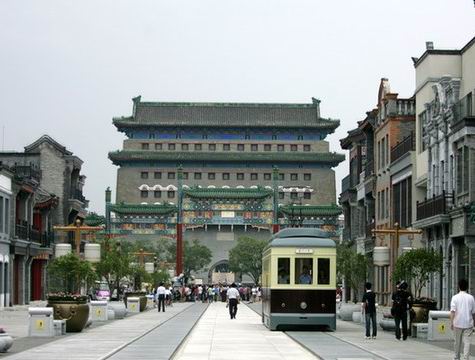 |
| [ Optional ] Dashilan old street: Dashilan is the oldest and perhaps one of Beijing’s most fascinating streets to explore. This district is cluttered South of Tian'anmen Square, it is the civilian area, known as the grassroots culture under the Forbidden City. |
|
| Day 2 Beijing ( B,L ) |
| Sightseeing tour with a private car with driver and a English speaking tour guide. Visit all must-see attractions in Downtown Beijing. |
Tian An Men Square | As the largest city plaza in the world, it is of great cultural significance for its seeing of several key events in Chinese history. Today here are always sightseers and kite-flyers. Most visit at dawn or dusk to see the flag raising and lowering conducted by the PLA. | Hutong Tour | The Hutongs is the old narrow paths where common people used to live. You will be taken by rickshaws to visit ordinary Beijing families living in these compound houses. Rickshaws are actually three wheeled bicycles. There are fleets of them circling around the Hutongs. | Forbidden City | For almost 500 years, the Forbidden City served as the home of 24 Emperors and their households, and the ceremonial and political center of the Chinese imperial government. It was listed by UNESCO as a World Cultural Heritage Site in 1987. |
|
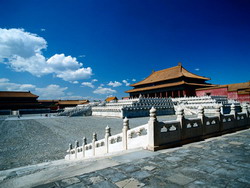 |
| [ Optional ] Kungfu show: The splendid Kung Fu show, running daily in Red Theater of Beijing shows you an authentic Kung Fu on the spot, which combining story-telling, acrobatics to celebrate the philosophy and skill of martial airs. You enjoy the opportunity to contact performers directly after the show or to learn Kung Fu from them! |
|
| Day 3 Beijing ( B,L ) |
| The program today is the Mutian Yu Great Wall and Temple of Heaven. The Mutianyu Great Wall is less crowded than Badaling, you might walk up and down the Wall on foot, or take cable car one way or round trips. The extra cost of cable car (RMB 50 one way) will be at your own cost. In the afternoon, we will visit the Temple of Heaven. |
Temple of Heaven | It was the place where the Emperor of the Ming and Qing dynasties would worship heaven and pray for good harvests. Built first in 1420, the Temple of Heaven is a precious example of China 's ancient architectural art and the largest design for worshipping heaven in the world. | Mutianyu Great Wall | Mutianyu Great Wall seems to be not popular as section at Badaling, but it doesn’t get as crowded, which assist you in appreciating the magnificent scenery easily. Woods cover over 96% of the total scenic area, and its 2.5 kilometer stretch allows you a walk with striking landscape and fresh air. |
|
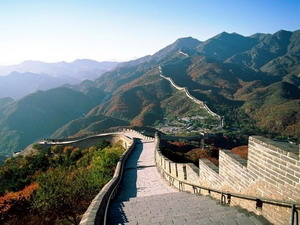 |
| [ Optional ] Dayali Restaurant: More than 40 chain restaurants under the same trademark of Dayali has been opened in Beijing area, served Peking duck and other local dishes, customers are mostly local Beijingers. Foods are good and price are reasonable. |
|
| Day 4 Beijing, Xian ( B,L ) |
| Visit Summer Palace in the morning, stop at Bird's Nest and Water Cube for farewell photo of Beijing. Fly to Xian.Be met at Xian airport by our tour guide in Xian and transferred to hotel. |
Summer Palace | The Summer Palace deserves your visit to her exquisite buildings, long corridor, and beautiful bridges. Her shoreline pathway makes an excellent run or walk for you. It was a luxurious imperial garden for royal families to rest and entertain in Chinese Qing Dynasty. | National Aquatics Centre (Water Cube) | The Water Cube (National Aquatics Center) was one of the three landmark buildings of the 2008 Beijing Olympic Games. The outward appearance of the Center is a semi-transparent "cube", with "bubbles" spread out all over its surface, a shape very similar to the structure of "H2O". | Olympic Stadium (Bird Nest) | The National Stadium, also named the “Bird’s Nest” due to its iconic design was the key competition venue of the Beijing 2008 Olympic Games. The stadium looks like a nest from the outside, symbolizing a cradle holding the hopes of mankind for the future. |
|
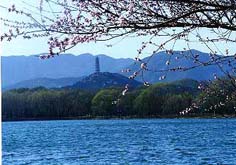 |
| [ Optional ] Muslim quarter: The Muslim Quarter features a mix of Chinese and Islamic cultures. It wins the reputation for the alley lined with market stall and the tasty snack food. Meanwhile, it is a good place to head for when looking for those hard-to-find souvenirs. |
|
| Day 5 Xian ( B,L ) |
| Visit the Terracotta Warriors and Horses Museum, relics of Huaqing Hot Spring and Big Wild Goose Pagoda. |
Huaqing Hot Spring | Huaqing Hot Spring is famed for both its dainty spring scenery and the romantic love story of Emperor Xuanzong (685-762) and his concubine Yang Guifei in the Tang Dynasty (618-907). | Big Wild Goose Pagoda | It was built in 652 during the Tang Dynasty and currently boasts height of seven stories. It’s said that Master Xuan Zang built this pagoda to house the Buddhist scriptures and relics he had brought back from India. | Terra Cotta Warriors and Horses Museum | Terracotta Warriors is the underworld terracotta army of Emperor Qin Shihuang (the first unifier of China, 259BC-210BC). It’s reputed as the Eighth Miracle of the World. Now the Terracotta Museum consists of Pit 1, Pit 2, Pit 3 and Pit 4 as well as the Hall of the two bronze chariots and horses. |
|
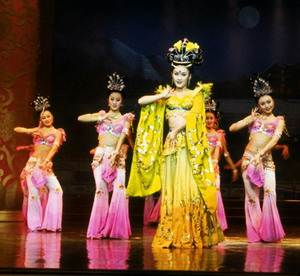 |
| [ Optional ] Tang Dynasty Dinner Show: The Tang Dynasty show has absorbed all the best music from the past dynasties and that of western regions and other countries. It vividly reflects their thriving economy, the friendly relationship between Tang and its neighboring countries, and the daily life of the Tang people. |
|